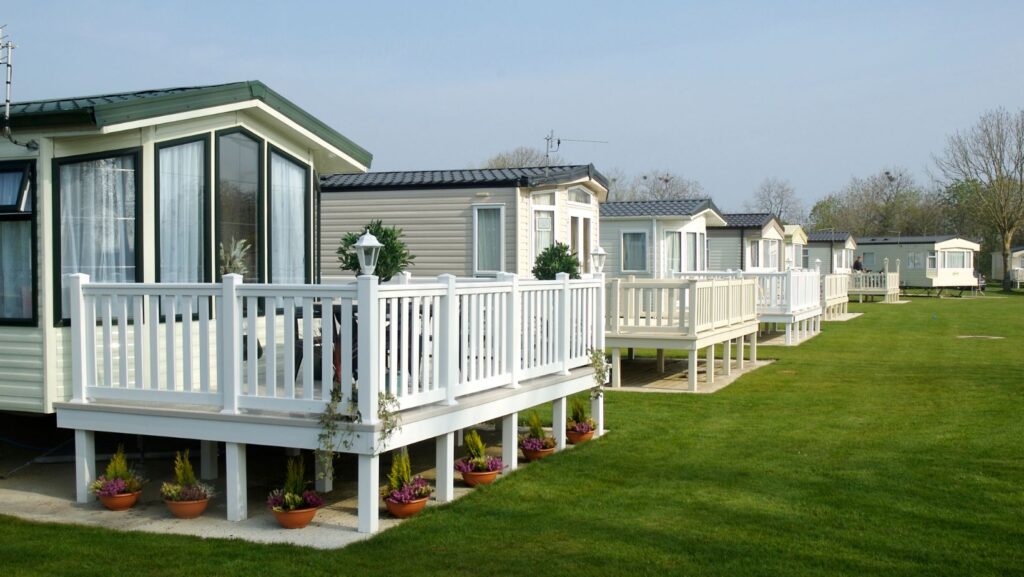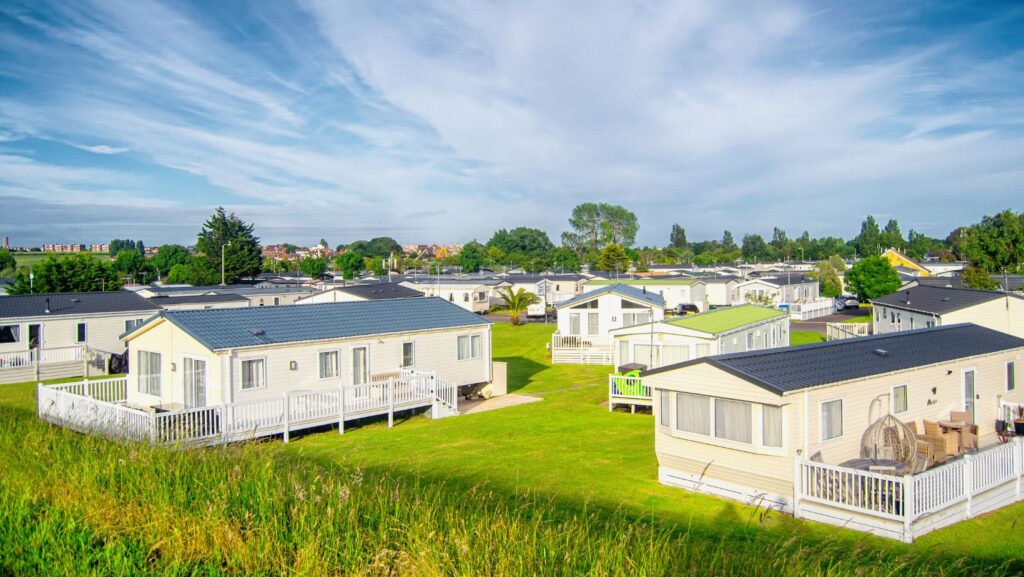Imagine having your own private retreat by the coast—a place where you can escape whenever life becomes overwhelming, where family traditions are built, and where the pressures of daily life simply melt away. For many, static caravans offer this dream without the eye-watering costs of seaside property ownership. Lincolnshire, with its beautiful coastline, welcoming communities, and accessible location, has become increasingly popular for static caravan ownership. Yet making the right purchase requires understanding far more than just the caravan itself.
Why Lincolnshire Appeals to Static Caravan Owners
Lincolnshire offers something increasingly rare—authentic seaside experiences without overwhelming commercialisation. The coastline stretches from the Humber to The Wash, encompassing traditional resorts like Skegness and Mablethorpe alongside quieter stretches perfect for peaceful getaways.
Beyond beaches, the county boasts the Lincolnshire Wolds—an Area of Outstanding Natural Beauty offering rolling countryside, charming villages, and excellent walking routes. Historic Lincoln provides cultural attractions, whilst market towns like Louth and Horncastle offer character and community. This diversity ensures you’ll never exhaust activities and experiences, whether visiting for weekends or extended stays.
The county’s accessibility from Yorkshire, the Midlands, Nottinghamshire, and East Anglia makes spontaneous visits practical. When your retreat is just an hour or two away rather than requiring complex travel arrangements, you’ll use it far more frequently—transforming ownership from an occasional luxury into a regular source of joy.
Understanding Static Caravan Ownership Costs
Initial Purchase Considerations
Static caravan prices vary enormously based on age, size, specification, and condition. Brand new luxury models can exceed £80,000, whilst quality pre-owned caravans start from around £15,000-£20,000. When exploring static caravans for sale Lincolnshire offers, you’ll find options across this spectrum, each with distinct advantages.
New caravans provide modern designs, contemporary specifications, manufacturer warranties, and personalisation options. However, they depreciate significantly during initial years. Pre-owned caravans offer better value, with previous owners absorbing the steepest depreciation, though inspection for damp and structural issues becomes crucial.
Annual Running Costs
Beyond the purchase price, budget for annual pitch fees—typically £2,500-£5,000 depending on the park’s location, facilities, and prestige. These fees cover your pitch, water, drainage, refuse collection, and usually access to park amenities like swimming pools, entertainment venues, and play areas.
Additional costs include insurance (£200-£400 annually), gas and electricity beyond any included allowances, council tax (if applicable), regular maintenance, and periodic servicing of gas appliances. Calculate total annual costs realistically—ownership becomes frustrating if running expenses strain your budget.
Long-Term Financial Considerations
Static caravans depreciate rather than appreciate, so don’t view them as financial investments. However, compared to decades of holiday cottage rentals or hotel stays, ownership can prove economical whilst offering infinitely greater flexibility and the satisfaction of personalising your own space.
Selecting the Perfect Static Caravan
Size and Layout Options
Static caravans range from compact one-bedroom models (around 28-30 feet) to spacious three-bedroom family homes (40 feet or more). Consider who’ll use the caravan and how often. Families with children need adequate bedroom separation and living spaces that remain comfortable during inevitable rainy days. Couples might prioritise quality, comfort, and outdoor space over sheer size.

Layout significantly impacts liveability. Open-plan designs create spacious feelings even in smaller footprints, whilst traditional layouts with separate lounges and dining areas suit some preferences better. Evaluate bedroom positions—some designs place the master bedroom at the opposite end from other bedrooms, providing privacy for parents when children visit with friends.
Essential Features and Specifications
Modern static caravans offer impressive specifications—double glazing, central heating, full-size appliances, en-suite facilities, and entertainment systems. Prioritise features matching your usage patterns and the seasons you’ll visit most frequently.
If you’ll use your caravan year-round or during colder months, residential-grade insulation and efficient heating become essential. Summer-focused users might prioritise outdoor decking, bifold doors, and outdoor furniture over advanced heating systems. Consider practical elements like adequate storage, functional kitchens with proper worktop space, and comfortable sleeping arrangements.
Condition Assessment for Pre-Owned Models
When considering pre-owned static caravans, thorough inspection proves vital. Damp represents the most common and costly issue—check carefully around windows, doors, floor areas, and roof edges. Musty smells, discoloured walls, or soft spots in flooring indicate problems requiring expensive repairs.
Examine the exterior for cracks, damaged panels, or deteriorating seals. Check gas appliances have current safety certificates and all plumbing functions properly. If you’re uncertain about assessing condition yourself, consider hiring specialist caravan inspectors before committing to purchases.
Choosing Your Holiday Park
Location and Accessibility
Select parks offering the environment and attractions matching your priorities. Families often prefer parks with organised activities, entertainment, and children’s facilities. Those seeking tranquillity might favour smaller, quieter parks emphasising natural surroundings and peaceful atmospheres.
Consider proximity to local attractions—beaches, towns, nature reserves—that you’ll want to visit regularly. Parks isolated from attractions can feel limiting after the novelty wears off, whilst those well-positioned near diverse activities maintain their appeal long-term.
Park Facilities and Standards
Visit prospective parks personally before committing. Assess facility quality, maintenance standards, and overall atmosphere. Quality varies dramatically—some parks maintain immaculate grounds with extensive amenities, whilst others provide basic facilities with minimal upkeep.
Speak with existing owners about their experiences. Are they satisfied with park management? How responsive is maintenance to issues? Are pitch fees reasonable and transparent? Honest feedback from current owners provides invaluable insights beyond marketing materials.
Management and Regulations
Research park ownership and management reputation. Established parks with stable, reputable ownership generally provide better long-term value. Check planning permissions and any proposed developments that might affect your enjoyment—nobody wants to discover a major construction project starting shortly after purchase.
Review park rules carefully. Some parks impose age restrictions on caravans, requiring replacement after 10-15 years regardless of condition. Others limit when caravans can be occupied, restrict visitor policies, or impose significant constraints on personalisation and modifications.
Financing Your Static Caravan
Many dealers and parks offer finance arrangements, spreading purchase costs over several years. Compare rates carefully—specialist caravan finance often provides better terms than general personal loans. Ensure repayments remain comfortably affordable even if your circumstances change, remembering you’ll also face annual running costs.
Some buyers prefer purchasing outright to avoid interest charges and maintain complete financial flexibility. Evaluate your personal financial situation honestly, choosing approaches that provide security rather than stretching budgets uncomfortably thin.
FAQ: Static Caravan Ownership Questions
Can I live permanently in my static caravan?
Most holiday parks operate under licences restricting occupancy to holiday use only, typically prohibiting permanent residence. Parks usually have closed seasons (often December-February) when occupancy isn’t permitted. If you’re seeking permanent accommodation, consider residential park homes instead, which operate under different regulations permitting year-round living.
What’s the typical lifespan of a static caravan?
With proper maintenance, quality static caravans last 15-25 years. However, some parks impose age limits requiring replacement after 10-15 years regardless of condition. Regular maintenance—addressing damp immediately, maintaining exterior treatments, servicing gas appliances annually—extends lifespan significantly. Neglected caravans deteriorate rapidly, particularly in coastal environments.
Can I generate income by renting my static caravan?
This depends entirely on park policies. Some parks operate subletting schemes allowing owners to generate income from unused periods, though they typically take substantial commissions (often 25-40%). Other parks prohibit subletting entirely. Clarify policies before purchasing if rental income factors into your financial planning.
What insurance do I need?
Comprehensive static caravan insurance covering fire, theft, storm damage, accidental damage, and public liability is essential. Most parks require proof of adequate insurance. Specialist static caravan insurance typically offers better coverage than adding caravans to home insurance policies. Policies should also cover contents and any modifications or improvements you’ve made.
How do I sell my static caravan when I’m ready to move on?
You can sell privately or through the park. Parks often operate resale schemes, taking commission (typically 10-20%) but providing convenience and access to interested buyers already familiar with the location. Some parks restrict where you can advertise or impose approval processes for potential buyers. Understand these terms before purchasing to avoid complications later.
Conclusion: Your Perfect Coastal Retreat Awaits
Owning a static caravan in Lincolnshire offers the freedom to escape whenever life demands, creating lasting family memories without the commitments and astronomical costs of traditional property ownership. By carefully evaluating running costs, thoroughly assessing caravans and parks, and understanding ownership responsibilities, you’ll make informed decisions leading to years of genuine enjoyment. The key is approaching purchases with realistic expectations, prioritising quality and suitability over simply finding the cheapest option, ensuring your investment becomes a treasured retreat rather than a source of regret.



